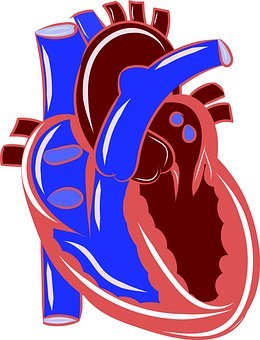As blogged previously, the question has been raised as to whether use of angiotensin converting enzyme (ACE) inhibitors or angiotensin receptor blockers (ARBs) could be associated with higher COVID-19 risk, higher risk of severe coronavirus infection, or even whether these medications could be protective, rather than harmful. Three studies just published on May 1st in the New England Journal of Medicine add important knowledge to this topic.
A population-based case-control study was conducted in Italy by Mancia and colleagues, looking at 6272 patients diagnosed with coronavirus infection, and comparing them to 30,759 controls matched for age, gender, and municipality of residence. They found that the use of blood pressure medications as well as medications to treat other medical conditions was higher in people with COVID-19 infection (not suprising, as we know that people with more severe COVID-19 symptoms are more likely to come to medical attention and be diagnosed, and that people with more severe COVID-19 infection are more likely to have chronic medical conditions requiring medications). On multivariable analysis where data were adjusted for treatment-related covariates and markers of clinical status, use of ARBs or ACE inhibitors did not show any association with COVID-19 overall, nor any association with risk of having a severe COVID-19 infection.
A study from New York by Reynolds et al examined the relationship between use of several types of blood pressure/heart medications and the likelihood of a positive or negative COVID-19 test, as well as the likelihood of severe illness of those with COVID-19. Using Bayesian methods after propensity-score matching, they found no association of getting a COVID-19 infection for any of the medication classes examined (ACE inhibitors, ARBs, beta blockers, calcium channel blockers, or thiazide diuretics). There was also no substantial increase in risk of having a more severe COVID-19 infection for any of these classes of medications. Interestingly, they found a 3.8% lower likelihood of a positive test for COVID-19 for people on beta blockers compared to those not on beta blockers; this is thought by the authors to be more likely to be due to confounding in the study design rather than a true antiviral effect.
The third study by Mehra and colleagues evaluated data from 169 hospitals in Asia, Europe, and North America, evaluating the relationship of cardiovascular disease and drug therapy with in-hospital death from COVID-19 infection. Amongst 8910 patients, there was no increased risk of death associated with either ACE inhibitors or ARBs. Interestingly, this study actually found that ACE inhibitors and statins (a class of cholesterol medications) were associated with a lower risk of death (67% and 65%, respectively) compared to those not taking these medications. However, the Journal advises in an accompanying editorial that this finding may be due to unmeasured confounding and should not be regarded as evidence to prescribe these medications in people with COVID-19 infection.
BOTTOM LINE: None of these studies show evidence of harm from ACE inhibitors or ARBs, with no increased risk of getting a COVID-19 infection, no increased risk of severe infection, and no increased risk of death. It is important to continue taking cardiovascular medications to ensure good control of these medical conditions.
Subscribe to my blog (box top right) for more on COVID-19 in the coming weeks.
Share this blog post using your favorite social media link below!
Follow me on twitter! @drsuepedersen
www.drsue.ca © 2020












